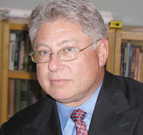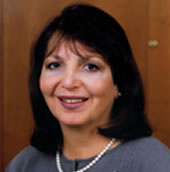
Guest Bloggers
HDRF in the Media,
September 3, 2015
As summer wraps up, we’d like to share a few pieces of recent press coverage on HDRF.
New York Social Diary features the White Tea Garden Party that HDRF Chair Audrey Gruss hosted at her Southampton residence to kick off HDRF’s Ninth Annual HOPE Luncheon Seminar this fall (November 10). You can purchase your tickets to the Luncheon Seminar here.
And Palm Beach Illustrated’s September issue features an informative interview with Audrey Gruss about HDRF’s Depression Task Force and our important research progress.
Raising media and public awareness about depression is a key part of HDRF’s mission to advance the understanding and treatment of depression. We are encouraged by the wide-reaching coverage from New York to Palm Beach!
Mariel Hemingway to Receive HOPE Award in November,
August 19, 2015
The Hope for Depression Research Foundation is thrilled to announce that actress and writer Mariel Hemingway will receive the 2015 HOPE Award for Depression Advocacy at the Ninth Annual HOPE Luncheon Seminar on November 10th in NYC.
In Ms. Hemingway’s recent book Out Came the Sun: Overcoming the Legacy of Mental Illness, Addiction and Suicide in my Family, she bares her experience with depression and how it often co-occurs with alcoholism and substance abuse. Mariel was born just months after her famous grandfather, writer Ernest Hemingway, died by suicide – a painful legacy that has shaped her life. What’s inspiring is how Mariel has moved beyond grief to help others through advocacy.
This year’s event, focused on “Alcoholism and Depression: Dual Diagnosis, Dual Treatment,” will also feature Dr. Charles O’Brien, Founding Director of the Center for Studies in Addiction at UPenn. A special Award will also be given to the Caron Treatment Centers for their leadership in the field of integrated treatment of mood disorders and addiction.
Please join us at this important event to learn potentially life-saving information about the latest practices in dual diagnosis and treatment. Tickets are on sale now.
Audrey Gruss LIVE from the Watermill Center,
August 11, 2015
HDRF Founding Chair Audrey Gruss will speak tonight on “Depression: The Cancer of the 21st Century” at the Watermill Center — operated by Robert Wilson’s Byrd Hoffman Watermill Foundation — in Water Mill, New York.
You can watch the event LIVE via this stream:
http://livestream.com/accounts/14465766/audreygruss
We hope you will tune in for this important talk and discussion!
New Psychology Today blog Features HDRF Researchers,
August 4, 2015
We’re honored to report that Psychology Today has invited HDRF to create a blog for its website that highlights the latest developments in depression research for the general reader.
The goal is to make our groundbreaking research accessible and useful to people in their everyday lives.
The Hope through Research blog is written and hosted by:
HDRF Board member Dr. Steven Roose (Columbia University), and Depression Task Force members Dr. Helen Mayberg (Emory University) and Dr. Michael Meaney (McGill University).
Check out the first entry by Helen Mayberg, who writes how a simple brain scan may help predict who will respond to antidepressants, or to therapy.
The Psychology Today blog provides over 3 million readers per month with news and information about psychology and represents a major opportunity for HDRF to raise awareness about the critical need for advanced depression research.
Dr. Joshua Gordon at AspenBrainLab on the Future of Depression Treatment,
July 28, 2015
We’re pleased to inform you that HDRF Depression Task Force member Dr. Joshua Gordon of Columbia University spoke this Saturday at the Third Annual AspenBrainLab in Aspen, Colorado.
Dr. Gordon told an audience of 400 at the Aspen Institute’s Paepcke Auditorium about how the promising research of the HDRF Depression Task Force can change the way we view, diagnose and treat depression.
“What I’m really excited about is … the explosion of tools that enable us to manipulate and monitor brain activity,” he told Aspen Public Radio before the event.
“In the next five or ten years we won’t just give a drug to the entire brain,” he continued. “We’re going to be able to target a treatment – whether it be drug, stimulation or psychotherapy – at particular neural circuits.”
The AspenBrainLab is a day-long symposium that convenes scientists and other experts from around the world to shed light on a range of brain-related topics for a general audience.
Click here to listen to an interview with Dr. Gordon regarding the event on Aspen Public Radio.



